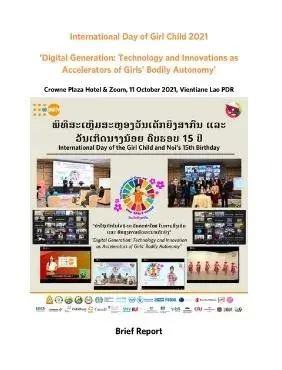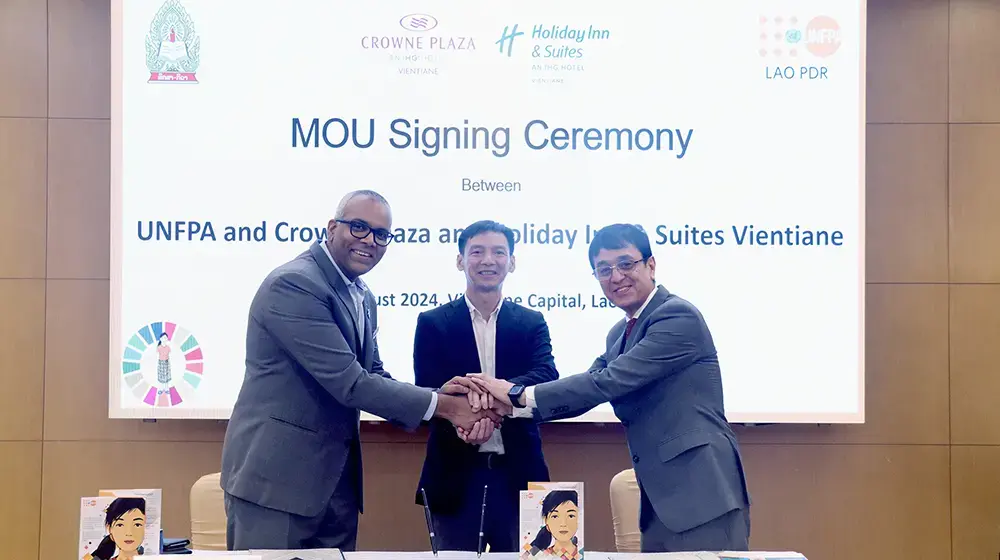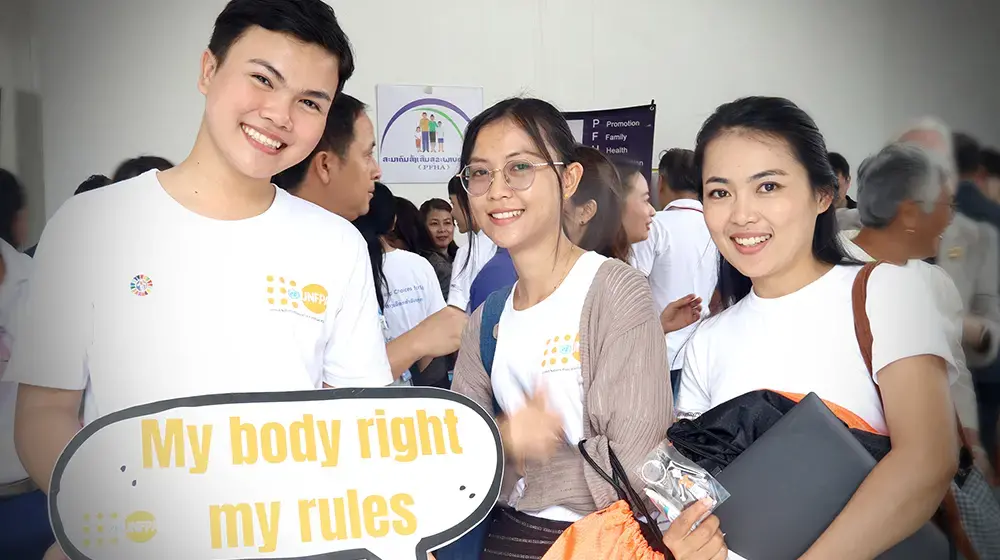The United Nations General Assembly declared October 11 as the International Day of the Girl Child in Resolution 66/170 adopted on December 19, 2011. Since then, October 11 is celebrated every year as the International Day of the Girl Child to recognize the rights of girls and the unique challenges faced by girls around the world.
In 2016, Lao PDR launched the Noi ecosystem approach having Noi, which represents all adolescent girls (over 700,000) in the country. She was created as an entry point for dialogue and to draw attention to the unique needs of adolescent girls as well as boys. Since then the Noi’s anniversary is celebrated every year on October 11 to highlight the progress related to adolescent programming, partnership building and to reinforce our commitment to promote empowerment of adolescent girls and boys with a vision of ‘leaving no one behind’
The first International Day of Girl Child in Laos PDR was led by the Ministry of Planning and Investment in 2016 under the theme: ‘Investing in Adolescent Girls for Sustainable Development of Lao PDR’. Since then, the celebration continues to be hosted by different government entities with a new theme each year. This year, Noi celebrated her 15th Anniversary. It was organized by Lao Youth Union and UNFPA with support from various partners: UN agencies, INGOs, CSOs and private sector partners. The theme of the celebration was ‘Digital Generation: Technology and Innovations as Accelerators of Girls’ Bodily Autonomy’.
The objective of the IDGC event and associated activities was to encourage active and inclusive participation of young people, policymakers, and the development community, focusing on solutions for the wellbeing of adolescents and highlighting the collective efforts and joint achievements. Issues and challenges of adolescent girls in the context of the implementation of 9th National Socio-Economic Development Plan (NSEDP) in the post COVID-19 situation.
Furthermore, this year’s event focuses on 5 priority areas of national youth and adolescent development strategy 2021-2030: 1) Health and wellbeing, 2) Education, Sport, and Training, 3) Employment and Entrepreneurship, 4) Social Protection and 5) Civic Engagement and Participation. The presentation at the event made by the concerned line ministries and mass organizations also focussed on progress made in 5 indicators of the Noi 2030 Framework linked to 5 SDGs: SDG 2 (Zero hunger), SDG 3 (Good health and well-being), SDG 4 (Quality Education), SDG 5 ( Gender Equality) and SDG 8 (Decent Work and Economic growth).




